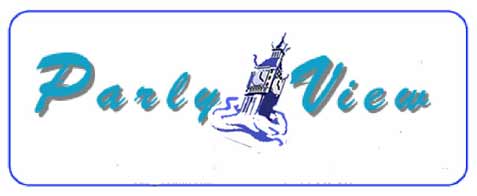Tuesday 23 February 2016
Wednesday 29 June 2011
Making hypnosis a virtual reality
Researchers in the United States are investigating virtual reality hypnosis to help manage depression and anxiety in chronic pain.
Clinical trials began this summer at Arlington Heights in Illinois with patients using a head-mounted display to immerse themselves in a 3-dimensional world of sights and sounds. The technology guides patients through the same steps clinicians or hypnotherapists would use during hypnosis.
The annual meeting of the American Pain Society was told that patients with chronic pain often find it difficult to visualise the images necessary for deepening trance states, so it is hoped the computer-simulated environment will overcome the problem.
Clinical care consultant Lynda Wargolet explained: "The approach has already shown significant efficacy in case studies."
The overlap between pain and psychiatric conditions is particularly evident in chronic syndromes such as headache, low back pain, nerve pain, fibromyalgia, and irritable bowel syndrome.
Studies investigating the neural substrates of chronic pain reveal shared biological mechanisms with anxiety and depression.
Sunday 15 February 2009
Just say "Cheese" constable - and you're nicked!
Incredible but true. From Monday, 16th February 2009 an amendment to the Terrorism Act 2000 made it a criminal offence to elicit or attempt to elicit, publish or communicate information, from amongst other persons, police constables. This carries with it imprisonment of up to 10 years plus the possibility of a fine.
Now, no one is suggesting that every time someone takes a snap which includes a policemen they're going to end up in dock.
But it does mean police officers can now arrest photographers if they do not like what they are photographing.
This latest example of a steady erosion of UK civil liberties, was introduced as part of the Counter-Terrorism Act 2008.
Far fetch? Unlikely to happen? Sadly no – it has already begun.
A London-based freelance photographer Justin Tallis was covering a demonstration against the BBC’s controversial refusal to broadcast a humanitarian appeal for aid for the people of Gaza following the Israeli invasion.
He took a photograph of the police constable who was on crowd control duty. The officer then demanded to see the picture but Tallis refused, insisting that as a press photographer on an assignment he had a legal right to take photographs of police officers on duty.
According a report in the British Journal of Photography the police officer tried to take the camera away and before giving up told Tallis that he 'shouldn't have taken that photo, you were intimidating me'. The incident was caught on camera by photojournalist Marc Vallee.
That was less than week after it was revealed how Cleveland Police stopped an amateur photographer taking pictures of ships. The photographer was asked if he had any terrorism connections then warned his details would be kept on file.
A month earlier, in December 2008, freelance press photographer Jess Hurd was detained by the police for more than 45 minutes while covering the wedding of a couple married in Docklands.
She was detained under section 44 of the Terrorism Act. Her camera was forcefully removed from her, and while she showed her press card, three police officers insisted on viewing the footage she had taken.







